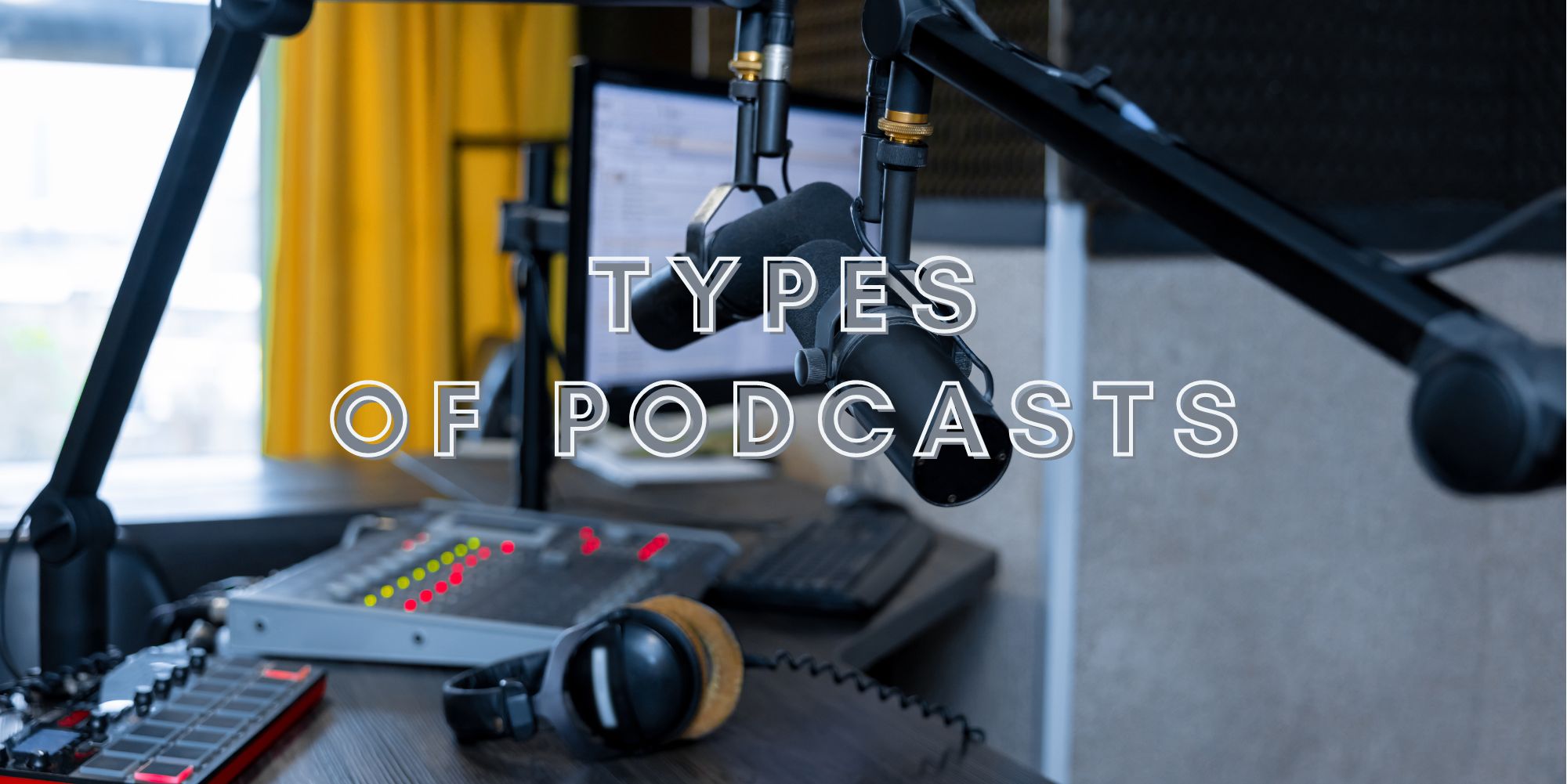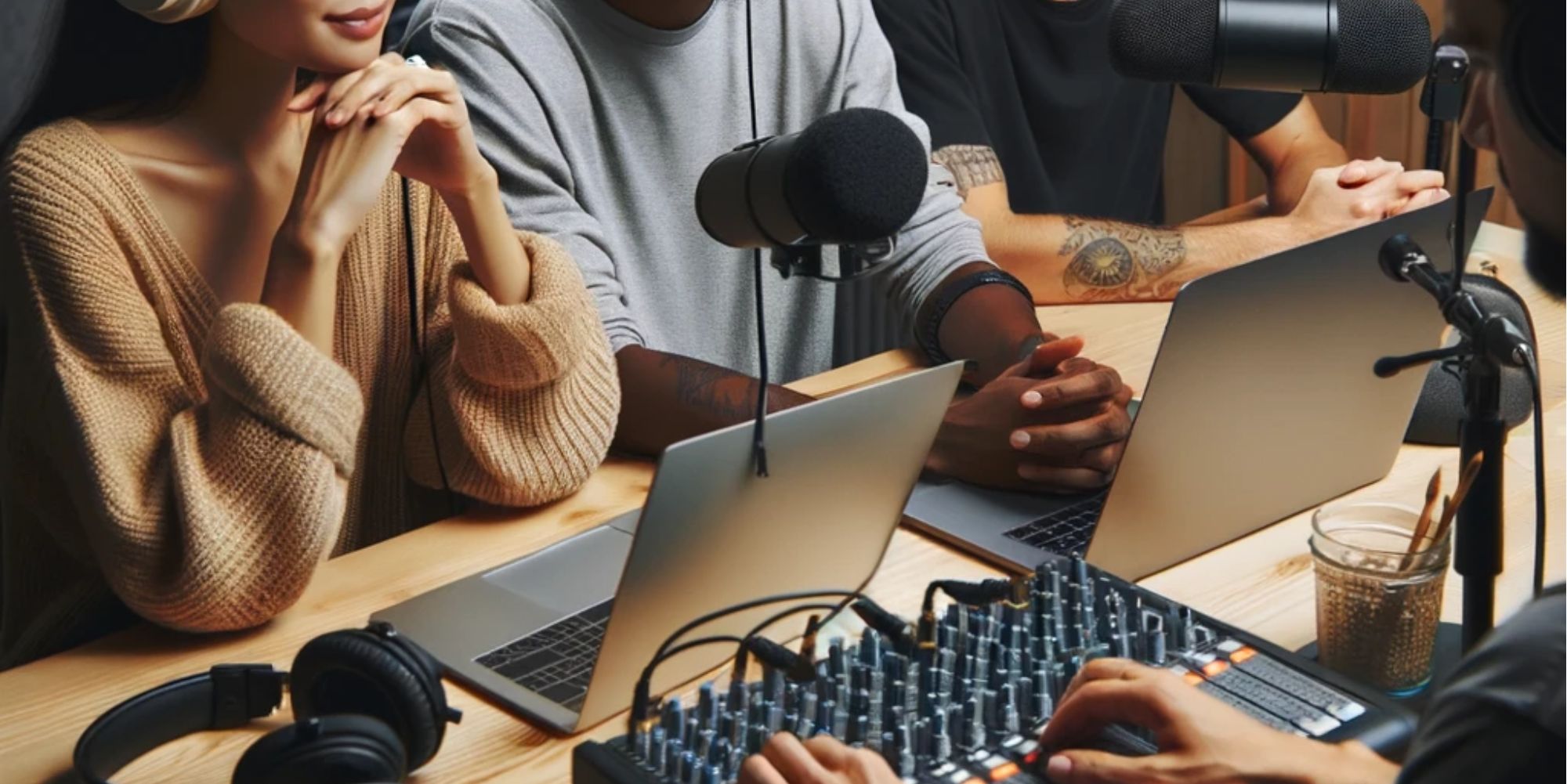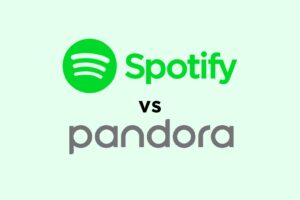
What Are Podcasts?
Podcasts are digital audio shows distributed via the internet, allowing users to download or stream episodic content. They cover a vast range of topics and can vary in format from interviews and discussions to storytelling and educational content.
Popular Podcast Formats
Podcasting has evolved into a dynamic medium, with content creators utilizing various formats to appeal to their audiences. Here’s a rundown of some common podcast formats:
- Solo Podcasts (Monologue):
- The host speaks directly to listeners.
- Solo podcast example: Bill Burr’s Monday Morning Podcast.
- Interview Format (or Conversational Podcasts):
- Involves a host (or hosts) and at least one guest in a discussion.
- Interview podcast format example: “The Joe Rogan Experience“.
- Multi-Host Show (Co-hosted):
- Two or more hosts share the platform, often discussing various topics or news.
- Example: “My Favorite Murder”.
- Narrative Storytelling:
- These podcasts feature stories told over multiple episodes or within a single episode.
- Serialized Format: A story unfolds over many episodes. Example: “Serial”.
- Single Episode Stories: Each episode is a self-contained story. Example: “This American Life”.
- Roundtable Discussion:
- A group of people discusses a topic in depth, often with different perspectives.
- Example: “The Roundtable Podcast”.
- Educational:
- Focus on teaching the audience about a particular subject.
- Example: “Stuff You Should Know”.
- News and Current Events:
- Deliver daily or weekly news on a variety of topics.
- Example: “The Daily” by The New York Times.
- Panel Shows:
- Feature a recurring panel and often include guests to discuss specific subjects.
- Example: “Wait Wait… Don’t Tell Me!”
- Hybrid:
- A combination of any of the above formats.
- Example: “Radiolab”.
- Fictional and Audio Drama:
- Scripted content that is akin to radio dramas of the past.
- Example: “Welcome to Night Vale”.
- Review and Recap:
- Discuss and critique entertainment media like TV shows, movies, and books.
- Example: “Binge Mode”.
- Interactive:
- Involves audience participation through Q&A sessions, call-ins, or social media interaction.
- Example: “Ask Me Another”.
- Non-fiction Documentary:
- Similar to narrative storytelling, but specifically focused on real events and reportage.
- Example: “S-Town”.
- Commentary:
- Usually involves a host providing commentary on a particular subject like sports, politics, or cultural phenomena.
- Example: “Pardon My Take”.
Each format appeals to different kinds of audiences and can be utilized depending on the podcast’s goal. From highly produced audio dramas to casual conversations, the right podcast format chosen can greatly affect the show’s structure, tone, and listener engagement or a podcast episode.
Let’s Discuss Your Upcoming Advertising Campaign!
Popular Podcast Genres
Podcasts have surged in popularity due to their accessibility and diversity of content, with several genres becoming particularly prominent. Among the popular podcast genres, interview podcasts stand out. These podcasts often feature a host or hosts engaging in conversations with guests from various fields, sharing insights, experiences, and personal stories. This format’s appeal lies in its intimate setting, which feels like eavesdropping on a private conversation, and it can range from celebrity interviews to industry-specific discussions.
Educational podcasts form another well-subscribed genre, with the objective of teaching listeners about a wide array of subjects. Whether it’s history, science, language, or self-improvement, these podcasts present information in an engaging and accessible way, often with the aid of experts, making learning convenient for a mobile audience. They cater to the curious minds looking to expand their knowledge during their commute, workout, or downtime.
Storytelling and is another popular podcast genre. Storytelling podcasts weave intricate narratives, fictional tales, or true crime stories, captivating listeners with well-crafted audio experiences that can be both entertaining and thought-provoking.
On the other hand, genres like news podcasts provide listeners with current affairs and in-depth journalism, allowing for a deeper understanding of the day’s events in a format that can be consumed on the go. Each of these genres speaks to the versatility of podcasts and their ability to adapt traditional media formats for the digital age.
Podcast Hosts

A podcast host is an individual or a team of people who present content in the form of a digital audio broadcast known as a podcast. The role of a podcast host is multifaceted; they are responsible for driving the conversation, engaging with guests, and often managing the creative direction of the show. Good podcast hosts have the ability to captivate their audience, creating a connection with podcast listeners through compelling storytelling, insightful commentary, or entertaining dialogue. Their personalities often become the hallmark of the podcast, attracting listeners who feel a kinship or affinity with the host’s style or perspective.
Popular Podcast Platforms
The most popular podcast platforms cater to a wide range of audiences and creators, offering various features from hosting services to extensive libraries of podcast content. Here are some of the most well-known platforms:
- Apple Podcasts: Formerly part of iTunes and now a standalone app on Apple devices, Apple Podcasts is one of the largest and most influential platforms in the podcasting industry. It offers millions of podcasts spanning all genres and is a default destination for many new listeners.
- Spotify: Initially famous for music streaming, Spotify has aggressively expanded into podcasts, including exclusive deals with high-profile creators. It provides a seamless experience for users who want to switch between listening to music and podcasts.
- Google Podcasts: This is Google’s podcast platform, integrated with their search engine capabilities, making it easy for Android users to discover and listen to podcasts.
- Amazon Music / Audible: Amazon Music has included podcasts in its streaming service, and Audible, primarily known for audiobooks, has also expanded to include a range of exclusive podcasts.
- Stitcher: A veteran in the podcasting space, Stitcher is both a content provider and a mobile app that offers personalized recommendations for listeners.
- iHeartRadio: Known for radio streaming, iHeartRadio also offers access to a variety of podcasts, including some exclusive shows.
- Pandora: Traditionally an internet radio service, Pandora now also offers podcast listening, with some shows available through its Music Genome Project-based recommendation system.
- Podbean: Podbean is both a podcast hosting platform and a podcast app. It offers an easy way for creators to publish and monetize their podcasts and for listeners to discover new content.
- Overcast: A popular iOS app, Overcast has a strong following due to its user-friendly interface and features such as Smart Speed and Voice Boost.
- Pocket Casts: This app is known for its powerful features that cater to podcast enthusiasts, including cross-platform syncing and a sleek user interface.
These platforms are constantly evolving, with many offering unique features like video podcasts, live podcasting, and enhanced discoverability options to attract both creators and listeners.
Podcast Advertising
Podcast advertising is a form of marketing where businesses promote their products or services directly to listeners of podcasts. This can be done through various ad formats, including pre-roll (at the start), mid-roll (during the episode), and post-roll (at the end) segments. These ads are typically read by the podcast host, lending a sense of personal endorsement.
The targeted and engaged nature of podcast audiences makes this a highly effective advertising medium and if you are looking for a podcast advertising agency, RadioActive Media has got you covered!



